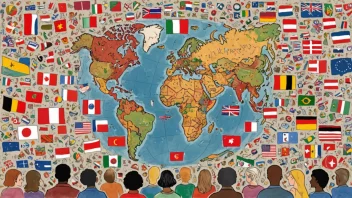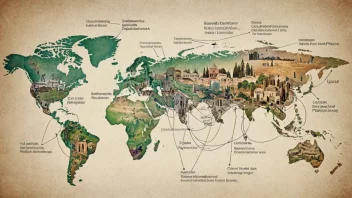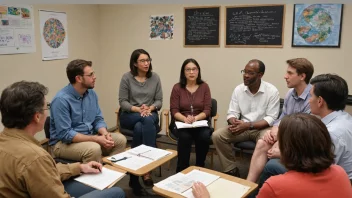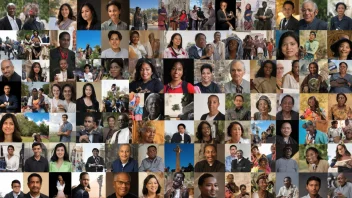As we navigate the complexities of the 21st century, global challenges such as climate change, social inequality, and political unrest demand our urgent attention. While scientific advancements and technological innovations are crucial in addressing these issues, the humanities offer unique perspectives and insights that are equally essential for fostering a deeper understanding of the human experience. The humanities encompass a range of disciplines, including history, philosophy, literature, and the arts, all of which contribute to a more comprehensive view of the world. One significant way the humanities help us understand global challenges is through historical analysis. By examining past events and movements, we can identify patterns and lessons that inform our current responses. For instance, studying the impact of colonialism on contemporary migration patterns sheds light on the socio-economic factors driving people from their homes today. Understanding the historical context allows us to approach current issues with a more nuanced perspective, ultimately leading to more effective solutions. Literature serves as another powerful tool for exploring global challenges. Through storytelling, authors create narratives that highlight the diverse experiences of individuals and communities grappling with social, political, and environmental issues. Reading literature from different cultures fosters empathy and broadens our understanding of the human condition. For example, novels that depict the struggles of refugees can deepen our awareness of their plight, encouraging us to advocate for more compassionate policies. Philosophy plays a critical role in shaping our ethical responses to global challenges. Engaging with philosophical questions about justice, responsibility, and human rights enables us to critically evaluate our values and the implications of our actions. For instance, discussions around climate justice highlight the moral obligations we have to future generations and marginalized communities disproportionately affected by environmental degradation. By grappling with these ethical dilemmas, we can strive for solutions that are not only effective but also equitable. The arts, too, hold immense power in raising awareness and inspiring action. Artists and performers often use their craft to address pressing global issues, creating works that provoke thought and encourage dialogue. Public art installations, for example, can serve as powerful reminders of the urgency of climate change, prompting viewers to reflect on their role in combating it. Furthermore, interdisciplinary collaborations that combine the insights of the humanities with scientific research can lead to innovative solutions. When scientists work alongside humanists, they can gain a deeper understanding of the cultural and social dimensions of the issues they study. This collaboration can result in more holistic approaches to problem-solving, such as developing public health initiatives that consider cultural beliefs and practices. In conclusion, the humanities are essential for understanding and addressing global challenges. They provide historical context, foster empathy, encourage ethical reflection, and inspire action through artistic expression. As we face complex and interconnected issues, the insights offered by the humanities can guide us toward a more compassionate, just, and sustainable world.
Humanities: Key to Solving Global Issues
Exploring the crucial role of humanities in addressing global challenges.






